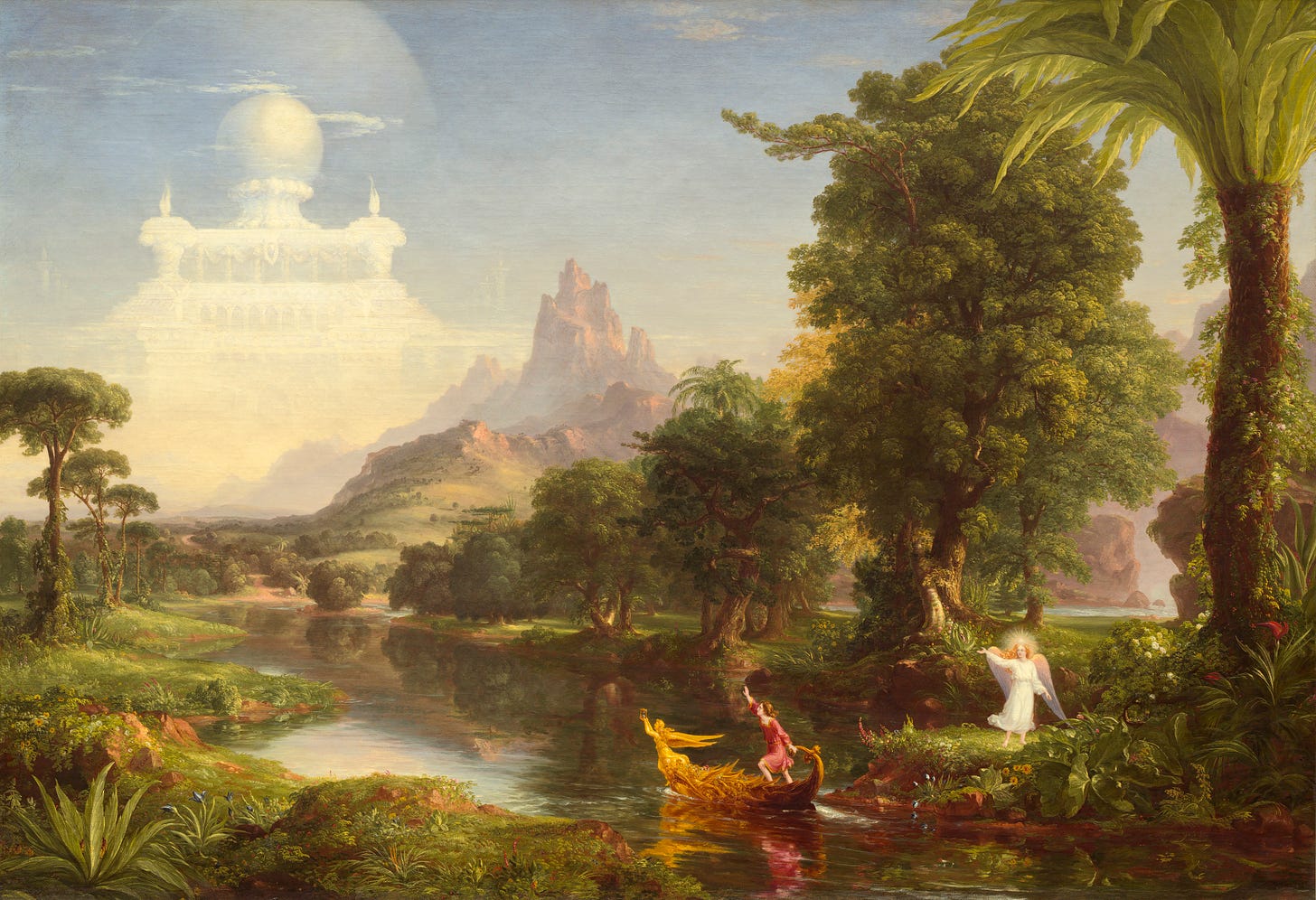Dear friend,
Recently, a longtime friend asked me what drew me to the San Francisco startup scene. “You studied philosophy and love literature, so I always clocked you as a humanities person,” she said. “It doesn’t make sense on paper — yet, somehow, it fits.”
My answer, in less carefully crafted terms, was this: I have always lived with one foot in make-believe, and am drawn to people who are the same.
The things that fascinate me most — startups, ideologies, literature, love — are acts of shared imagination. We conjure up new worlds and ask others to inhabit them with us; we build a glimmering tower upon a mirage. We are drawn to promise and potential over what is actual, seduced by visions of what could be rather than what is.
There’s power in this delusion. Invention, at its core, is a subversive act of imagination. To create anything truly original, we must grasp onto an nebulous vision with enough conviction — even when it remains invisible or incomprehensible to others — that we cannot help but alter reality to accommodate it. I often recall this Steve Jobs quote: “Life can be much broader once you discover one simple fact: everything around you that you call life was made up by people that were no smarter than you and you can change it.”1 Each of us has the power to reweave our swatch of reality, so long as we surrender part of our rational perception to our imagination.
But at what point does fantasy become falsity? How long can an illusion be sustained through sheer will? It’s clear that a certain degree of blind belief is necessary to convert a vision into reality before there is any evidence of its potential to succeed2, but what’s less obvious is when this self-delusion is just a harmful denial of truth. I think about Theranos and FTX, Fyre Festival and Anna Delvey, and even of romances built upon rose-tinted visions of “meant to be” that inevitably crumble under the force of reality. Once the mirage dissipates and the tower comes crashing down, we’re left standing, stunned, in the settling dust, wondering how we allowed our vision to become so distorted.
I’d propose that the answer is balance — having one foot in reality and the other in an imagined ideal — but part of me finds that unsatisfactory. Remaining in the liminal space seems to be a self-imposed purgatory, unable to fully commit to one way of life or another: working within existing bounds, or birthing a new paradigm.
But Fitzgerald once wrote that the true test of intelligence is the ability to hold two opposing ideas in one’s mind at once and still be able to function. Perhaps living in our increasingly complex world demands comfort with contradiction: seeing the world both as it is and as it should be, and bringing the former closer to the latter.
With love,
Ash
See William James’ “The Will to Believe”





This describes me perfectly - I've always lived with one foot in make-believe and the other in science (hence why I ended up studying medicine). But really, it all stems from my deep fascination of humans. Great piece!
I really enjoyed this Ashley. Loved: “Remaining in the liminal space seems to be a self-imposed purgatory, unable to fully commit to one way of life or another: working within existing bounds, or birthing a new paradigm.”
Awesome work :)